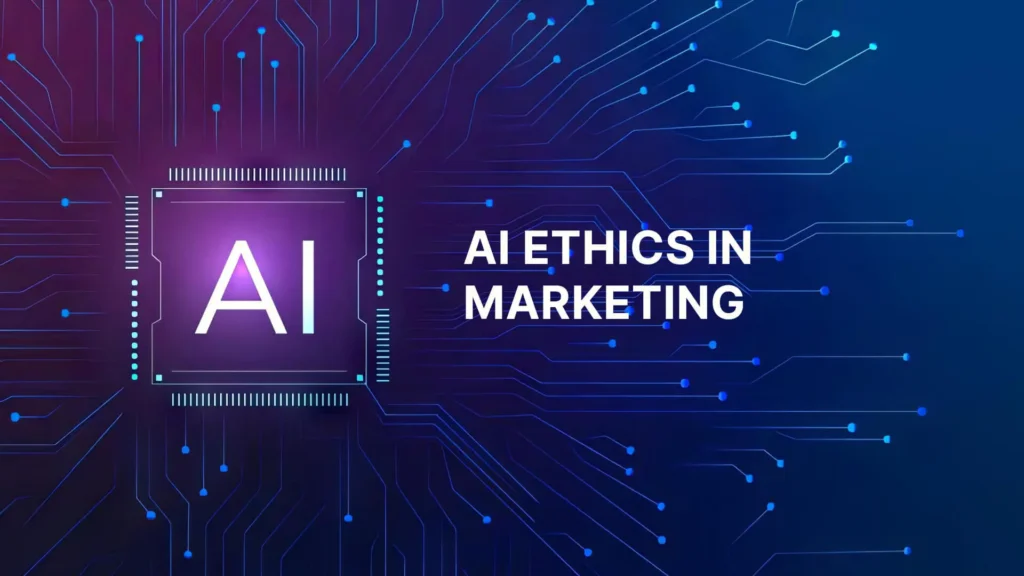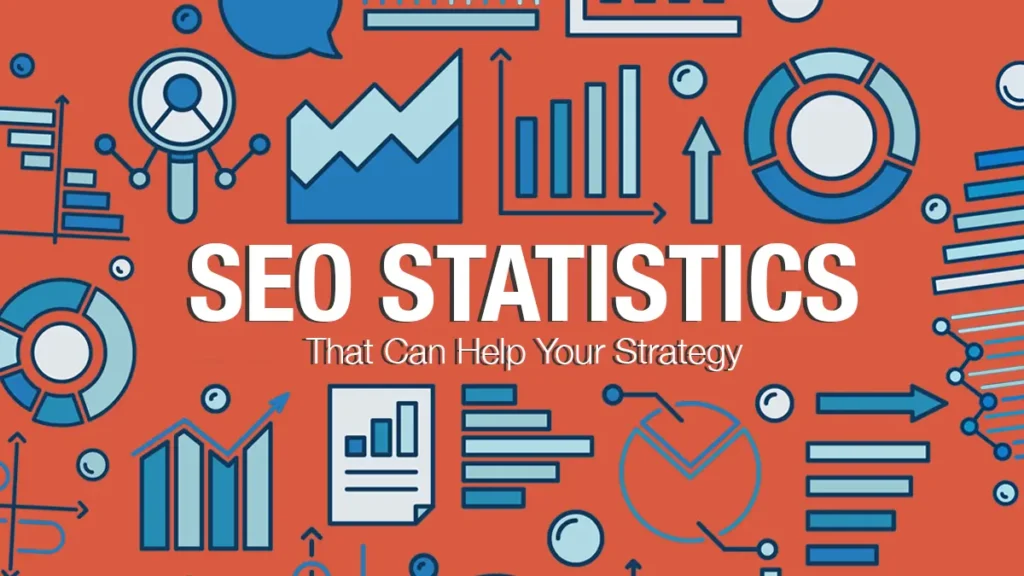
The Ethical Use of AI in Digital Marketing teams are currently considering artificial intelligence (AI) to be their new intern because it is quick and easy eager, and frequently needs supervision.
Despite concerns that AI will completely replace marketers, we are witnessing a mutually beneficial interaction between digital marketers and this technology.
Indeed, according to our 2024 Global Digital Skills & Training Report, marketing executives are including AI-driven projects into their plans, and many of them expect a major boost in efficiency (45%), creativity (38%), and productivity (50%).
As marketers, we have outgrown the question of whether AI should be used in our daily work or campaigns.
The Ethical Use of AI in Digital Marketing in 12 Most Important SEO Statistics to know in 2025

The process of making web pages, landing pages, and content more relevant to search engine results pages (SERPs) is called search engine optimization, or SEO. You may grow your business more quickly and raise its online presence with a solid SEO strategy.
But like any digital platform, the goals are constantly changing. With the introduction of algorithms like Google RankBrain and artificial intelligence (AI)-powered search results like Google AI Overviews, marketers must now work harder to provide content that engages people and adds value.
To assist you manage the always evolving world of search marketing, here are 12 of the most important things you should know.
How to Generate high quality leads?
One of a marketing team’s most important duties is lead generation. You must use the right combination of techniques and methods to attract and maintain clients in order to convert them. A compelling message, a seamless customer experience, first-rate customer support, and a robust lead scoring system—which AI tools may help with—are all necessary.
But let’s be honest: generating leads is a difficult undertaking. The Ethical Use of AI in Digital Marketing competitors are probably employing similar tactics to reach their target audience, and people are continuously inundated with content that tempts them to click, share, or buy
What is lead Generation?
The Ethical Use of AI in Digital Marketing the generation of leads is the method of attracting interested customers to your business with the goal of maintaining and converting them into clients.
You can use both inbound marketing and outbound marketing for generating leads. The business and the target audience will guide the strategy you use.
Attracting potential customers to your product or service is the goal of inbound advertising. Here, content marketing may be the most successful strategy. Make sure your content contains keywords through search engine optimization (SEO) and use blogs, ebooks, social media postings, and webinars.
Contacting potential clients is known as outbound marketing. Cold calling, email marketing, leveraging a social network like LinkedIn, or sponsored advertising are some ways to accomplish this.
The Ethical Use of AI in Digital Marketing The kind of material you produce and the resources you allocate to activities will depend on the strategy you choose. Since many businesses employ both strategies, it’s worthwhile to consider how combining inbound and outbound marketing can increase lead production.
Why is lead generation important?
A business needs to create leads if it is for it to succeed and grow even if it has a large and dedicated audience in the Ethical Use of AI in Digital Marketing
The reality is that an important number of leads will not result in sales. Because they only want to take advantage of an offer and have no intention of making a purchase, some leads may never convert.
Because of this, lead generating can be a costly endeavor. First Page Sage’s analysis indicates that the average organic cost per lead is $409.07 across all industries.
The Ethical Use of AI in Digital Marketing In order to keep people going through the funnel and eventually converting, it is crucial to continuously create leads. You can invest the necessary effort on leads that have the highest conversion rates by labeling and segmenting them.
Additionally, you are advertising your company and increasing brand recognition by taking the initiative to generate leads.
How can you generate leads?
The Ethical Use of AI in Digital Marketing It’s time to learn how to produce leads now that you understand their types and the significance of lead production for your company.
According to Hubspot’s 2025 State of Marketing Report, 80% of marketers believe their lead generation efforts are only somewhat or somewhat successful, and 63% of marketers think their main difficulty is generating traffic and leads.
The Ethical Use of AI in Digital Marketing this implies that your lead creation tactics require careful consideration and work.
The first step you should do is go over your buyer profiles. Since they assist you with choosing your target demographics, these are the very first steps in your lead generation process.
The Ethical Use of AI in Digital Marketing You may create content that resonates to them and pulls them into the sales funnel, which will eventually result in a conversion, by knowing who you need to talk to.
Let’s now look at a number of successful lead generation platforms and techniques.
How can you measure the success of lead generation?
You want to know how successful your lead generation efforts have been after investing so much time and energy into them.
You must monitor important indicators that demonstrate the caliber and efficacy of your leads in order to accomplish this. The lead conversion rate, which calculates the proportion of generated leads that become actual customers, is one of the key metrics. The right audience is being drawn in and nurtured by your lead generation approach if your conversion rate is high.
The cost per lead (CPL) is another important metric. This calculates the cost of acquiring each lead. So, a lower CPL with a steady or increasing conversion rate indicates an efficient lead generation process.
Video SEO offers brand-boosting value
The Ethical Use of AI in Digital Marketing According to Wyzowl, including videos on your website helps 88% of marketers generate leads. In addition, excellent videos can help SEO results by reducing bounce rates and increasing spend times.
The Ethical Use of AI in Digital Marketing according to Finances Online, video is expected to expand at the fastest rate among digital advertising because it is visually appealing.
A brief segment of video footage can have a lot of personality and worth. Content that is relevant, interesting, and provides genuine value is rewarded by search engines. Given that YouTube continues to be the world’s most prominent video search engine, it is obvious that implementing a thorough video marketing strategy can improve your SEO performance.
The Ethical Use of AI in Digital Marketing according to studies, 65% of people use AI products to improve their SEO results. Additionally, 67% of companies report that using AI improves the quality of their material.
Large datasets are analyzed by AI-powered tools like SEMrush and SEO Surfer to expedite the keyword research or comparison process.
Platforms like ChatGPT are also being used by search marketers to find keywords for their content and group them into pertinent buckets or clusters when given the appropriate instructions. What’s the lesson here? Now might be an excellent moment to start utilizing technologies to support your SEO marketing efforts if you haven’t before.
Google is still the most popular search engine by a long way
Google continues to hold the majority of the search industry, even if AI-influenced searches are becoming more and more common. Google currently holds a market share of 89.74%, although Bing is not far behind at 4.04%, according to Statista.
such as Yahoo! Although far fewer people use them, China’s Baidu, Russia’s Yandex, and DuckDuckGo—a program that aggregates search engine queries—are also utilized as search engines!